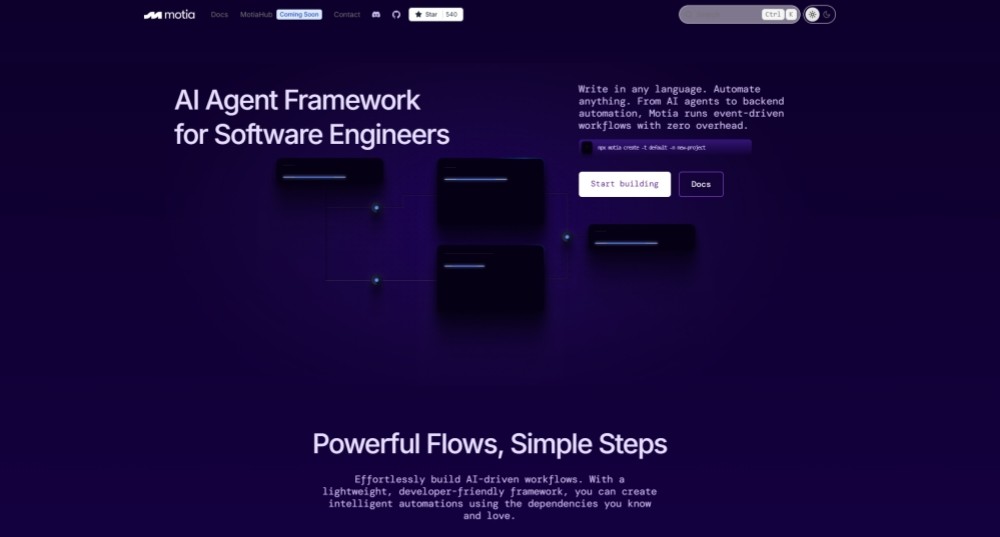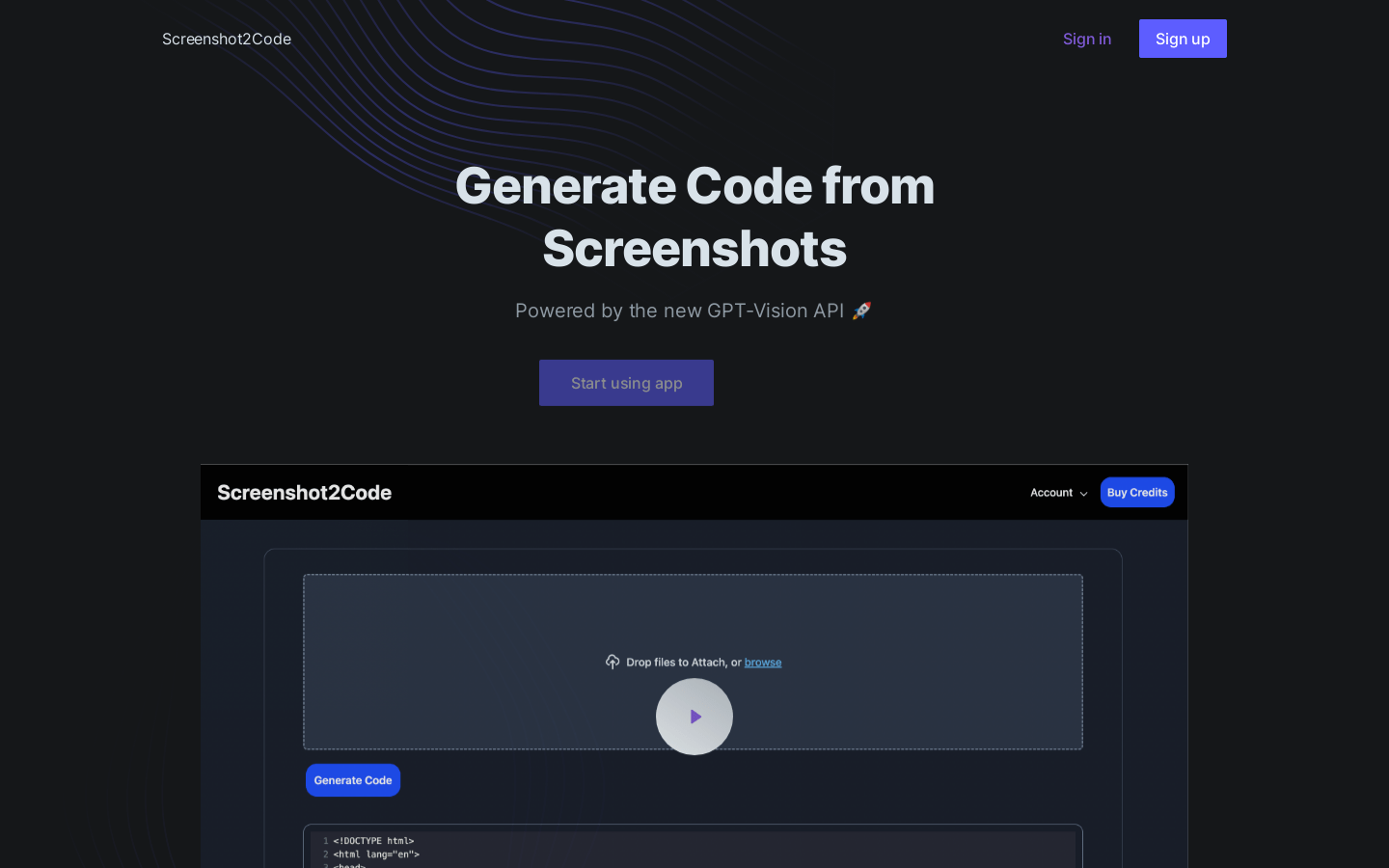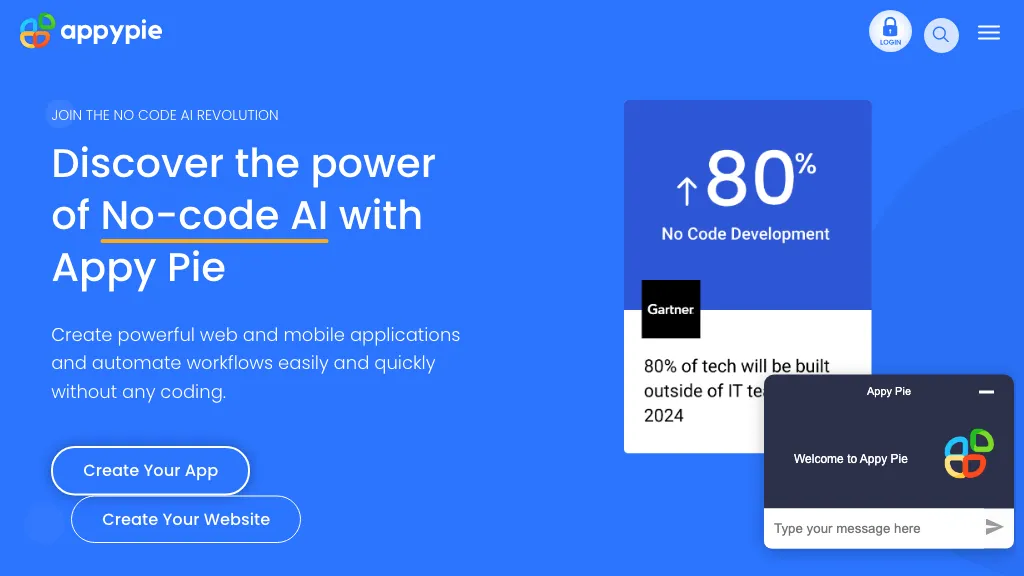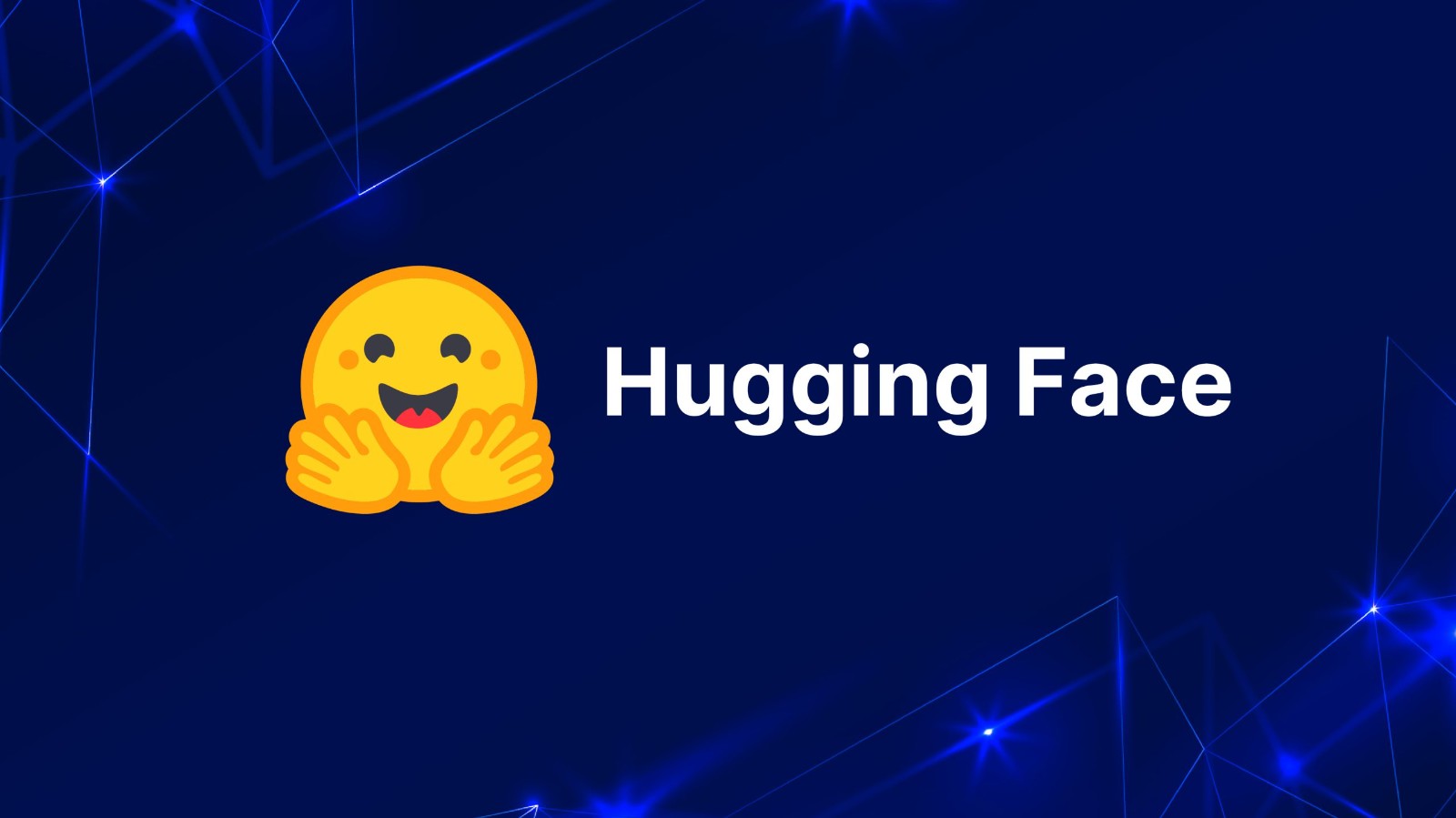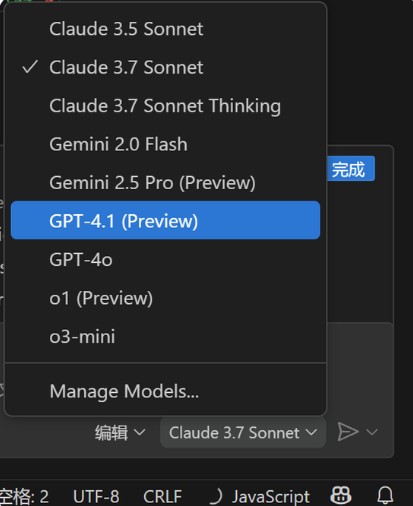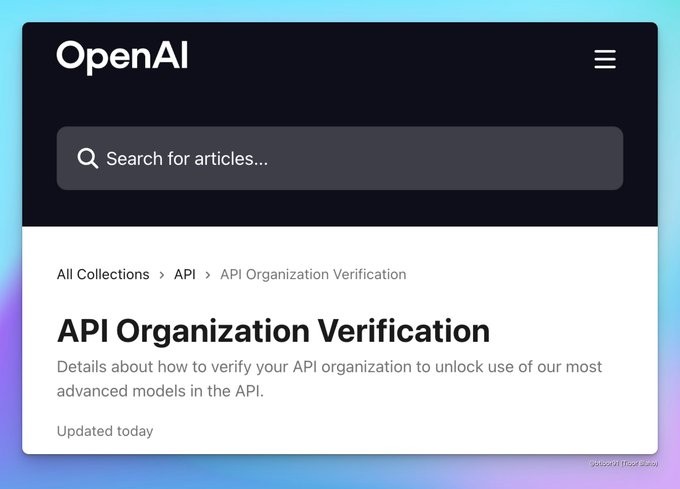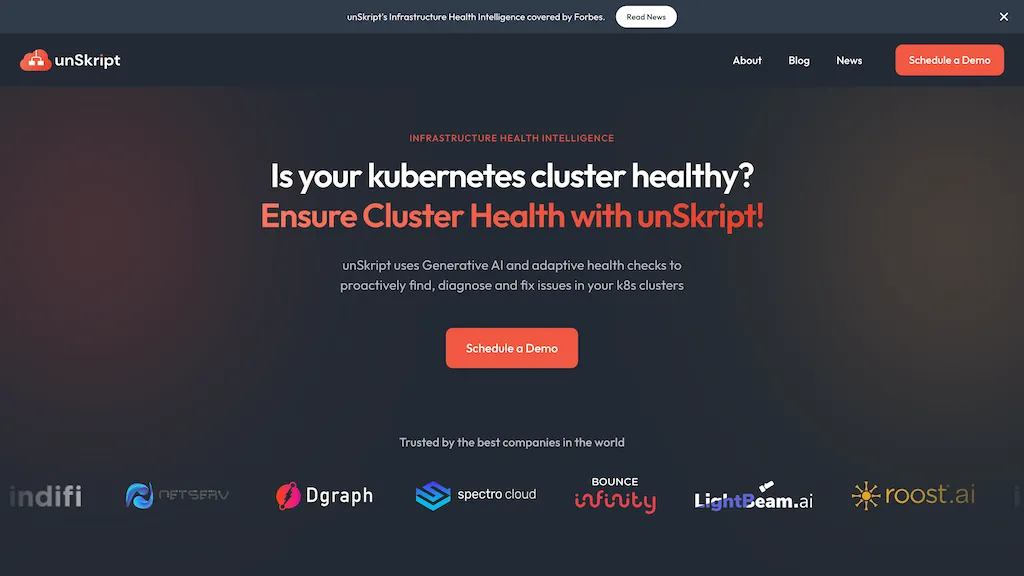
What is unSkript?
Unskript is an AI-powered infrastructure health platform that proactively ensures the wellbeing of Kubernetes (K8s) clusters.Its adaptive health checks prevent issues by running scheduled checks, making it trusted by top companies worldwide.
Unlike reactive issue detection tools, Unskript uses generative AI for autocomplete diagnosis and remediation in a human-in-the-loop interface, allowing users to maintain control while benefiting from AI's assistance.
Unskript's continuous learning AI constantly updates its knowledge base from user incidents, preventing wasted time on repeating work when similar issues arise on different clusters.With Unskript, software teams can minimize downtime by detecting problems before they become incidents, allowing them to focus on strategic tasks instead of mundane maintenance.
Key features
unSkript core features and benefits include the following:
Real-time generative AI troubleshooting.
Proactive issue prevention through adaptive health checks.
Continuous learning AI with updated knowledge base.
Human-in-the-loop interface for diagnosis and remediation.
Detects problems before they become incidents.
Use cases & applications
Unskript is an AI-powered infrastructure health platform that proactively ensures the wellbeing of Kubernetes (K8s) clusters..
Its adaptive health checks prevent issues by running scheduled checks, making it trusted by top companies worldwide..
Unskript uses generative AI for autocomplete diagnosis and remediation in a human-in-the-loop interface, allowing users to maintain control while benefiting from AI's assistance..
